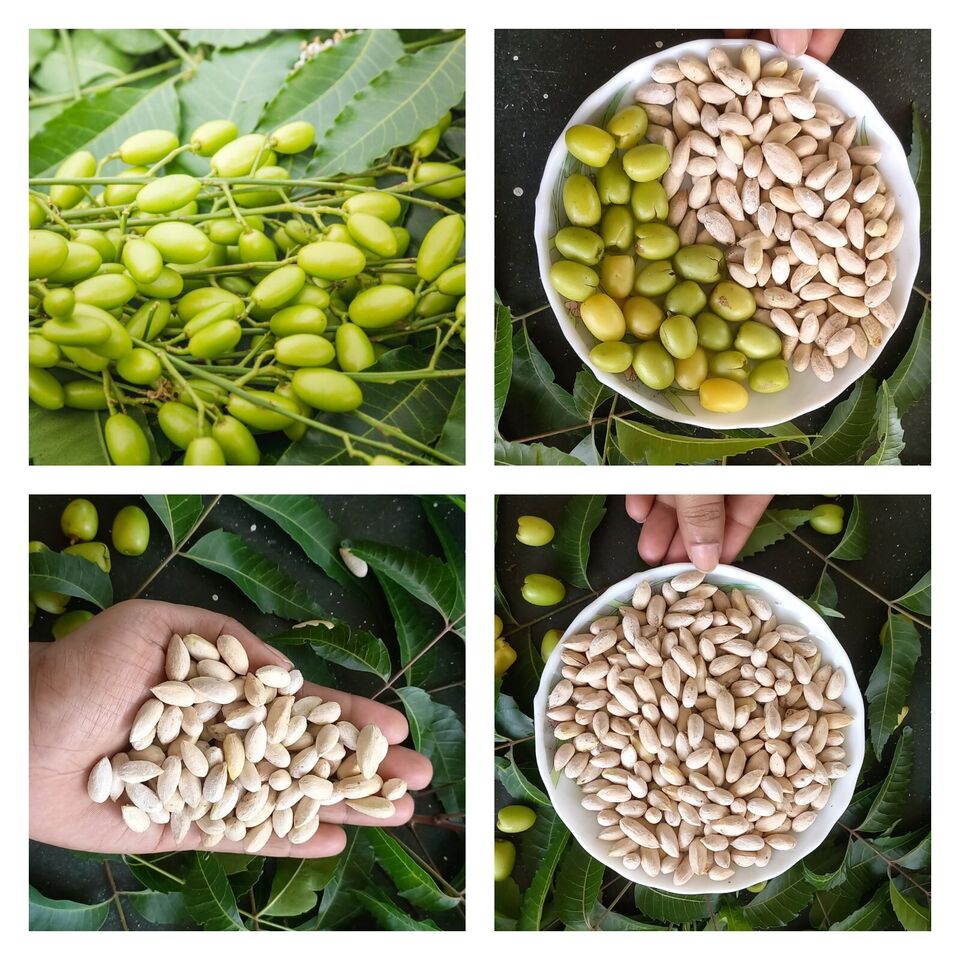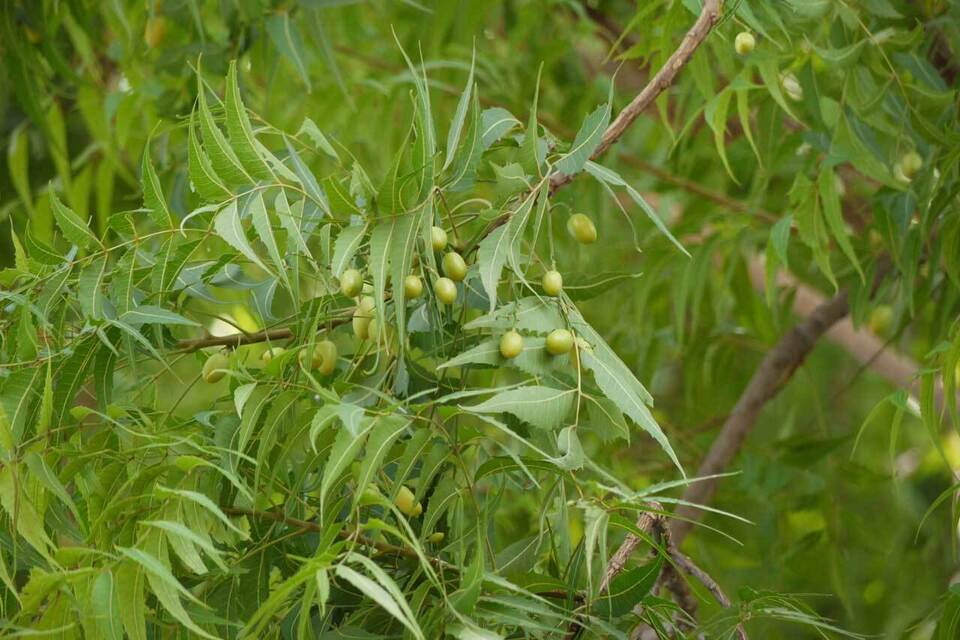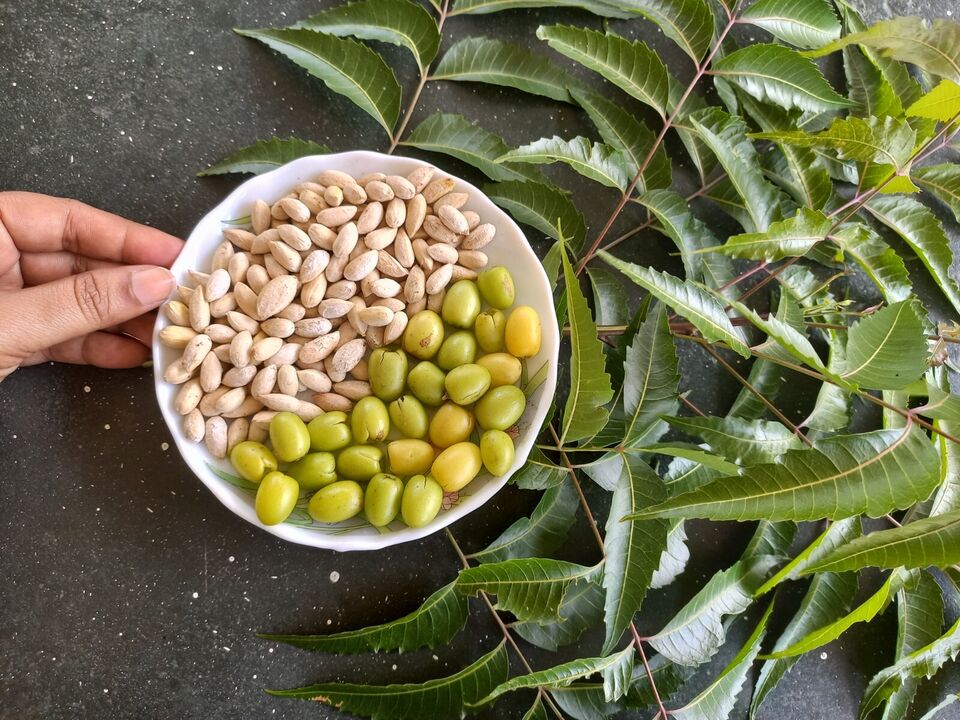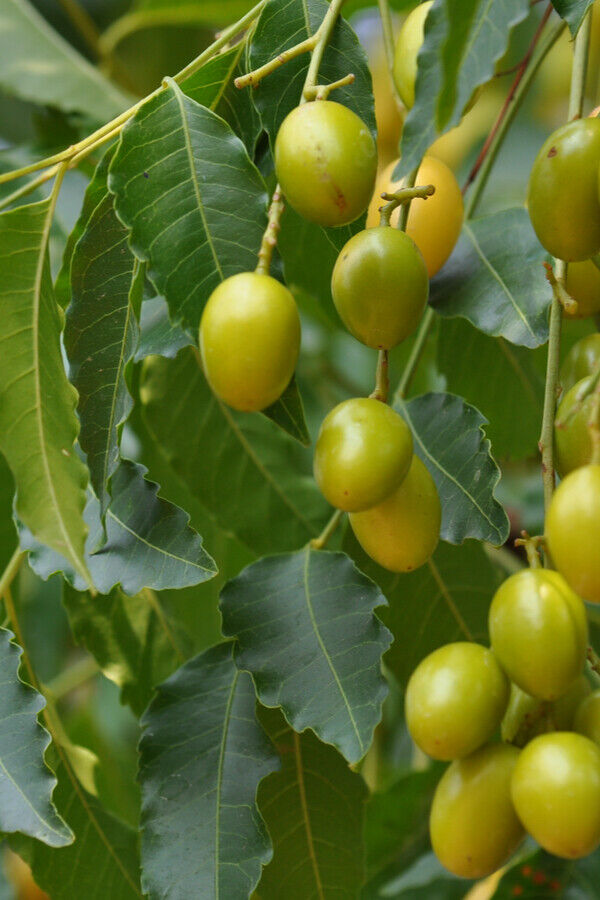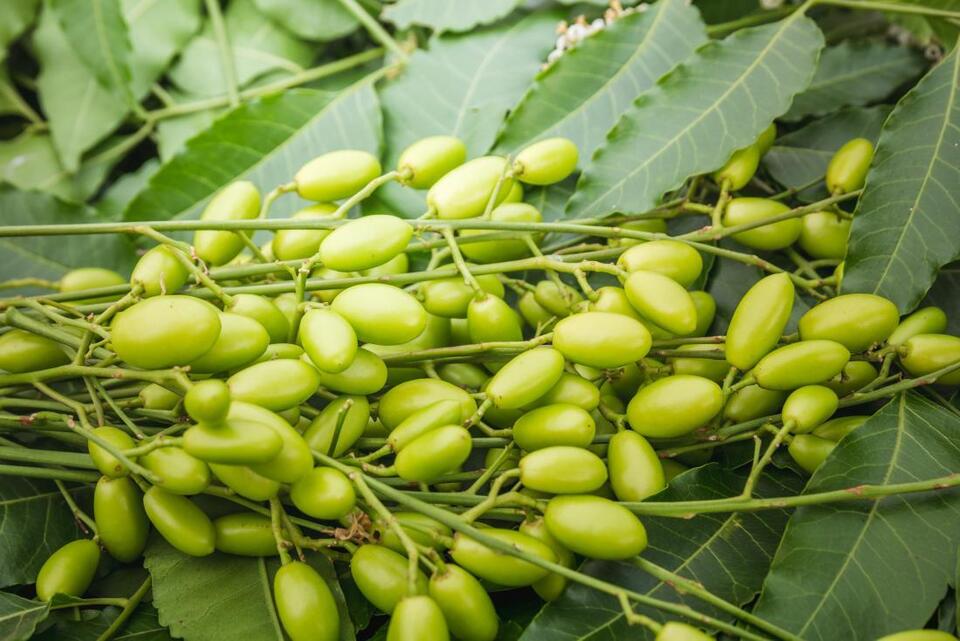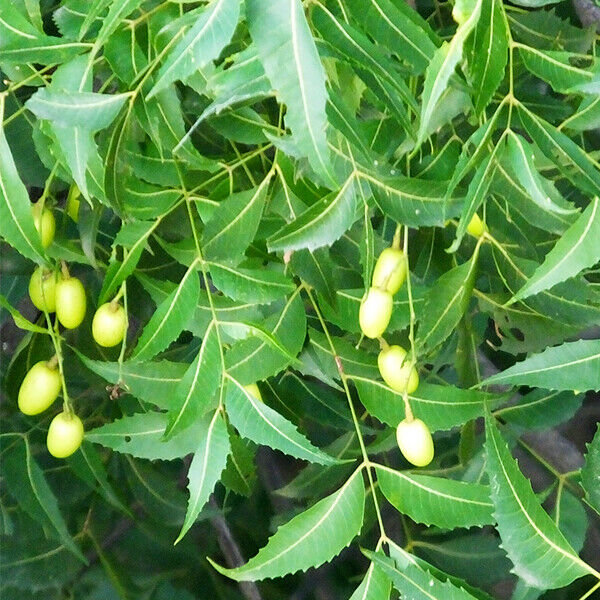Senci Green Garden
Neem Tree Seeds (Azadirachta Indica) Fresh Herbal
Neem Tree Seeds (Azadirachta Indica) Fresh Herbal
Couldn't load pickup availability
Neem Tree Seeds (Azadirachta Indica)
Azadirachta indica, commonly known as neem, is a versatile evergreen tree native to the Indian subcontinent, particularly found in India, Bangladesh, and Pakistan. It belongs to the mahogany family, Meliaceae, and is renowned for its various medicinal, agricultural, and environmental uses.
Description
Appearance: Neem trees typically reach heights of 15-20 meters (50-65 feet) and can live for up to 200 years. They have a dense, rounded crown and a straight trunk that may reach up to 2.5 meters (8 feet) in diameter.
Leaves: The pinnate leaves are compound, alternate, and feature 10-31 serrated leaflets arranged in pairs, each about 2-6 cm long. They have a distinctive bitter taste and a strong odor when crushed.
Flowers: Neem produces small, white, fragrant flowers that are arranged in dense clusters. They are bisexual and have a sweet, honey-like scent.
Fruits: The fruit of the neem tree is a small, smooth olive-like drupe that is green when young and turns yellow as it ripens. It contains a single elongated seed.
Uses
Medicinal: Neem has a long history in traditional medicine, where various parts of the tree (leaves, bark, seeds) are used for treating a range of ailments such as skin diseases, fever, infections, and digestive disorders.
Agricultural: Neem is a valuable resource in agriculture due to its pesticidal properties. Neem oil, derived from the seeds, is used as a natural insecticide, fungicide, and miticide. It is effective against a wide range of pests while being relatively non-toxic to beneficial insects, humans, and animals.
Environmental: Neem plays a significant role in environmental conservation. Its deep root system helps prevent soil erosion, and its leaves and fruits provide fodder for livestock. The tree also has potential in reforestation efforts and as a source of biofuels.
Cosmetic: Neem extracts are used in various cosmetic and personal care products due to their antibacterial, antifungal, and moisturizing properties.
Cultural Significance
Neem has cultural and religious importance in India and is often associated with health, hygiene, and protection. It is considered a sacred tree in Hinduism and is traditionally planted near temples and homes.
In summary, Azadirachta indica (neem) is a multifaceted tree that combines medicinal, agricultural, environmental, and cultural significance, making it one of the most revered and utilized trees in tropical regions worldwide.
Share
